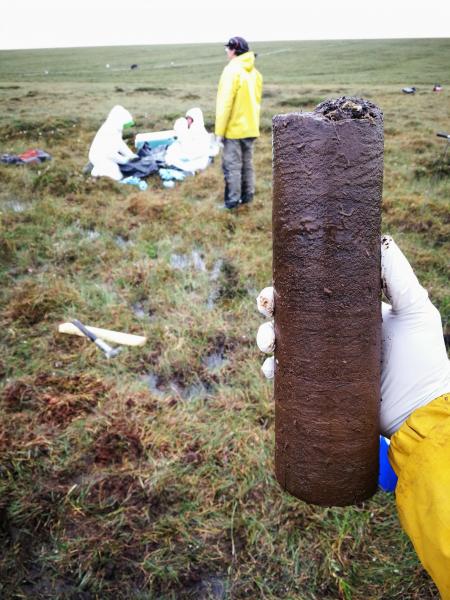EEB Tuesday Lunch Seminar/student evaluation: Microbial controls on the degradation of permafrost soil carbon following thaw
Karl Romanowicz, EEB Graduate Student
Soils contain more organic carbon than the atmosphere and vegetation combined, and northern permafrost regions in the arctic represent ~50 percent of the global belowground soil organic carbon pool, most of which has been preserved frozen for thousands of years. Recent climate warming has initiated substantial regional permafrost thaw that is predicted to convert permafrost soil organic carbon into an important source of carbon dioxide (CO2) and methane (CH4) to the atmosphere. Known as Arctic amplification, this increased release of greenhouse gases from thawing permafrost soils will act as a positive feedback on global warming and subsequently thaw more permafrost soils that can be further degraded to greenhouse gases. However, the organic carbon in permafrost soils must first be dissolved and oxidized before it can feedback to the atmosphere as a greenhouse gas. In my seminar presentation I will describe how my research investigates the microbial controls on the degradation (i.e., partial and complete oxidation to CO2 and CH4) of dissolved organic carbon (DOC) released from thawing permafrost soils. My experiments explore connections between the soil environment and the ecological characteristics of the soil microbiome including 1) microbial membership, 2) the genomic potential of the microbial community, and 3) the microbial processes that facilitate DOC degradation in thawing permafrost soils.
| Building: | Biological Sciences Building |
|---|---|
| Event Type: | Workshop / Seminar |
| Tags: | Biology, Ecology, Research, Science |
| Source: | Happening @ Michigan from Ecology and Evolutionary Biology, EEB Tuesday Lunch Seminars |


